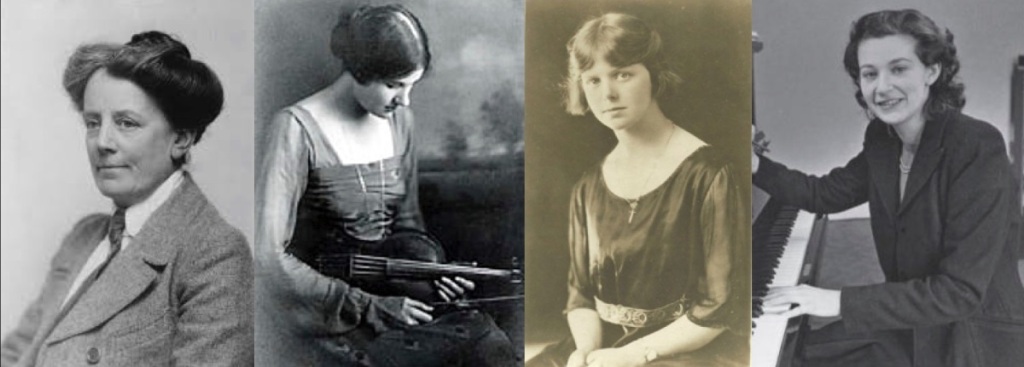Dr. Leah Broad, of Christ Church, Oxford, whose work promises to mark a real turning-point in—dare we say it?—Clarke Studies, will be available to answer your questions about her current research, via Zoom, on Friday, February 12, 2021, at 10:00 a.m., Greenwich Mean Time (check here for your local equivalent, and lay in masses of caffeine if you’re anywhere in the Western Hemisphere).
You may remember Dr. Broad’s terrific paper on The Seal Man at last year’s conference of the Royal Musical Association, or her recent article about Dame Ethel Smyth in The Guardian, or the announcement of her book Quartet—of which Rebecca Clarke comprises a very exciting and glamorous one-fourth—due from Faber in 2023.
The Q&A on February 12, part of an interdisciplinary graduate seminar entitled The History of the Gendered Body, will focus on new ways of understanding Clarke, not as the victim of legend—a characterization that Clarke herself strenuously rejected—but as a self-willed, self-determined, self-managed professional who set her own course, made her own way, and forged a style all her own. In addition, Dr. Broad will share some of her latest thinking about Clarke’s enthusiasm for things Oriental, from her taste in fabrics to several of her most distinctive compositions.
Anyone may join the session, and admission is free. Sign up here, by clicking the “Mailing list” button near the top of the page.
See you there. We’ll be the bleary-eyed type with the steaming mug of Lavazza Gran Selezione and the relentlessly self-advertising cat, making a determined effort to follow Clarke’s sterling example, as practiced in Molokai, Hawaii, on July 19, 1923, while taking a day off from writing Rhapsody: “Waked at 4 a.m., got into riding togs & motored to the south west end of the island, where the horses met us for a cattle-drive. Rode up across the rough country nearly to the other side, driving an ever-increasing herd of cattle before us. There were 22 of us, counting the cowboys. Had some wonderful gallops, my horse took a ditch, & I chased a truant calf & got it. Very thrilled. After lunch motored to the sea & rested.”

Go ye and do likewise.

